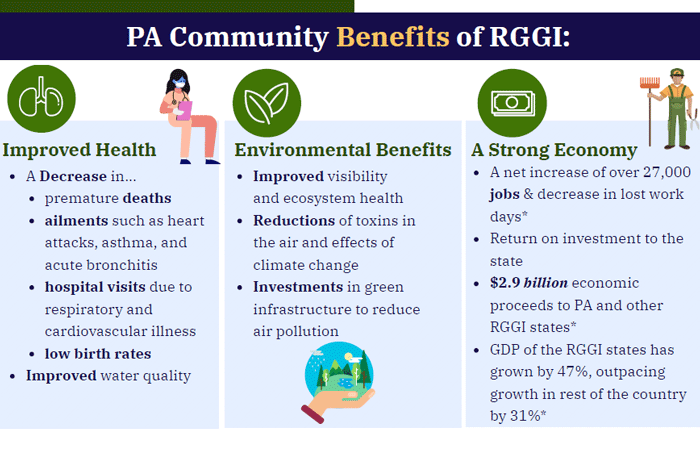Environmental Studies Project Presented to DEP for Consideration

With communication and anti-racist research at its heart, proposal looks to improve the lives of environmentally at-risk Pennsylvania residents
by Tony Moore
When officials at the Pennsylvania Department of Environmental Protection’s (DEP) Office of Environmental Justice are tackling pressing issues and need answers, they turn to experts. Recently, the issue was how to best use proceeds from greenhouse gas-reduction programs to prevent pollution concentration in Pennsylvania communities affected by environmental injustice.
And the experts the DEP turned to were students in Associate Professor of Environmental Studies Heather Bedi’s Environmental Research Methods and Civic Engagement course.
Meaningful engagement
“We studied meaningful community engagement and spoke to people from a wide range of backgrounds,” says Claire Burnet ’24 (educational studies, environmental studies) of the five-month study. “Community organizers, professors and nonprofit coordinators all told us that the most important piece of community engagement was coming in without an agenda and without actively listening to communities. Being able to communicate that to the DEP felt really important.”
Students got started by fielding questions from the DEP and then focusing their efforts on excavating answers to DEP’s concerns from the community itself.
“The interviews created opportunities for students to learn from community members and also created new opportunities for student engagement,” says Bedi, who serves on the DEP’s Environmental Justice Advisory Board. “For example, a student received a summer internship offer following an interview with the head of a California environmental nonprofit.”
The final report emerging from the study—"A Just Regional Greenhouse Gas Initiative: Meaningful Engagement and Air Quality Benefits in Environmental Justice Communities”—led to the students proposing ways to include justice in the Regional Greenhouse Gas Initiative (RGGI), which will generate proceeds for air pollution reduction in Pennsylvania and set a cap on carbon dioxide emissions in 10 participating states in the Northeast.
Communication is key
“Through the report and presentation, students were able to share Pennsylvania resident concerns and preferences to potentially inform the RGGI process,” says Bedi, noting that two students will be undertaking follow-up research focusing on anti-racist research and scientific communication with the head of the DEP’s Office of Environmental Justice. “Communication and the sharing of knowledge are necessary to identify and challenge structures that perpetuate environmental racism.”
The proposal was presented to Patrick McDonnell, secretary of the DEP, and state officials are currently considering how to frame the RGGI for further study and possible implementation.
“The opportunity to dig into community-centered, solution-oriented work was really empowering,” says Burnet. “To hear from the DEP that our findings would inform how they allocate RGGI revenue and prioritize environmental justice throughout the department was really exciting.”
TAKE THE NEXT STEPS
Published June 7, 2021